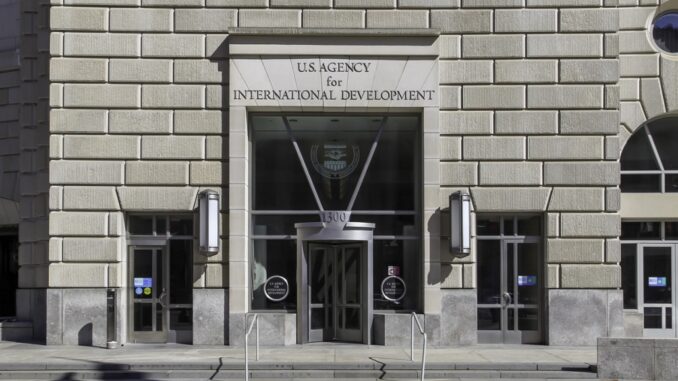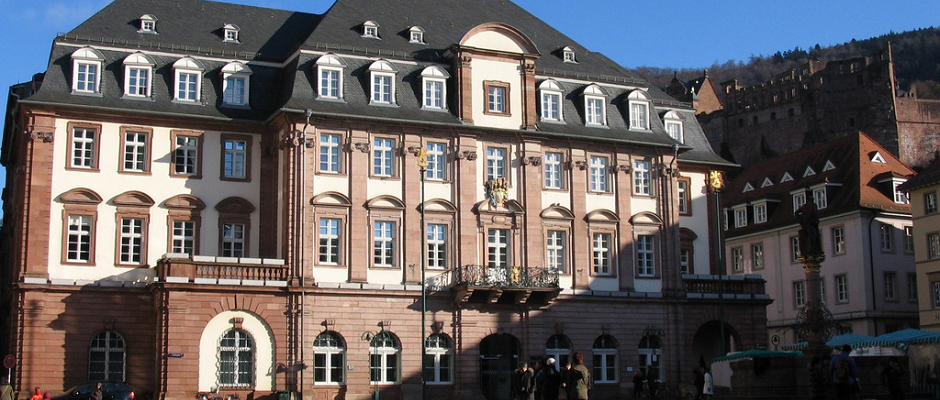
Dear Administrator Power:
On behalf of the Local Public Sector Alliance, I would like to thank USAID for publicly sharing its draft Democracy, Human Rights, and Governance Policy for review and scrutiny, before the policy is finalized and used to guide the allocation of hundreds of millions of dollars in U.S. foreign assistance.
DRG Policy Context
The United States Agency for International Development (USAID) is the largest bilateral development agency in the world, and arguably the largest supporter of democracy and inclusive governance around the world. USAID’s current effort to update its democracy rights and governance (DRG) policy is welcome, reflecting an awareness of changes in the global context for democratic governance.
The goal of the draft Democracy, Human Rights, and Governance Policy is “to optimize USAID’s support to partners to invigorate democracy, enhance human rights and justice, and bolster governance that advances the public interest and delivers inclusive, sustainable development. The policy establishes a shared vision of democracy’s essential role in achieving development results in all sectors and affirms the belief that other sectors have an essential role in contributing to democratic progress. … USAID’s elevation of DRG across all sectors responds to all peoples’ longing to have greater agency to influence the decisions that affect their daily lives, enjoy fairer systems of government, and see their basic needs and concerns addressed by those in power.” [emphasis added]
The Local Public Sector Alliance is a not-for-profit global professional network that champions inclusive, equitable societies and sustainable global development by advocating for more inclusive and efficient decentralization and localization.
The United States has a long tradition of inclusive governance, not only at the federal level, but especially at the state and local government levels. In an evolving global development landscape, the United States is extremely well-positioned to serve as a strong and credible voice on the importance of inclusive subnational governance and local democracy.
Subnational governance and the American experiment with representative democracy
The American experiment with representative democracy is inherently one of local self-governance, state’s rights, federalism, and the sharing (and contestation) of power between different government levels. Although other countries have their own public sector structures and intergovernmental arrangements, the important role of multilevel governance arrangements in the pursuit of inclusive governance and sustainable development is universal:
- The United States has a long tradition of inclusive governance at the state and local levels. Elected state and local governments preceded the formation of the United States as a federal country by over 150 years. The first representative assembly in North America—the Viriginia House of Burgesses—convened in Jamestown, Virginia, on July 30, 1619. New York City received its right to establish a city government from the Dutch colonial government in 1653. In Democracy in America (1838), Alexis de Tocqueville famously notes that the tradition of New England town meetings “are to liberty what primary schools are to science; they bring [democracy] within the people’s reach.”
- At last count, in addition to the federal government, 50 state governments, the District of Columbia (DC), five major territories, and tribal governments, the United States has 90,837 local government units, including 3,031 county governments, 35,705 subcounty (municipal and town) governments, 12,546 elected independent school district governments, and 39,555 other special purpose governments.
- The vast majority of democratically elected representatives in the United States— 96.2%–are local elected officials. These break down to 135,531 city elected officials, 126,958 township members, 58,108 county officers, 95,000 school board members, and 84,089 special district members. By comparison, there are only 537 elected officials at the federal level in the U.S..
- Americans receive most public services from—and have more frequent contact with—their state and local governments than from the federal government. Police departments, libraries, and schools—not to mention driver’s licenses and parking tickets—usually fall under the oversight of state and local governments. Over half of public spending in the United States is done by state and local governments in the United States.
- The U.S. federal government regularly engages in intergovernmental partnerships with state and local governments—and provides extensive grants-in-aid to state and local governments–to promote national policy goals, such as infrastructure development or climate-related investments.
- As the government level closest to the people, Americans have the most faith in local government: 67% have a fair amount or a great deal of trust and confidence in local governments handling local problems. Local governments form the government level where there is the greatest opportunity for meaningful participation, inclusion, voice, responsiveness, and contestability, and where electoral representation is the greatest. Conversely, Americans have the least faith in the government level furthest removed from the people: fewer than one-third of all Americans trusts the legislative branch of the federal government, or Congress (32%). State governments fall in the middle (59 percent).
As noted recently by Secretary Blinken, “[c]ities, when you come down to it, are where democracy is closest to its people. And when cities are responsive to the needs of residents, they demonstrate democracy’s greatest strength: its ability to improve on itself, to empower citizens to hold their leaders accountable, to try out different solutions, and to allow the best ideas to rise to the top.” The rich array of state and local governance institutions and processes in the U.S. reflect the wide variety of successful approaches to engaging citizens in their own governance and delivering public services. While there is no globally superior—or ‘one-size-fits-all’—approach to subnational governance, the lessons inherent in the American experience with multilevel governance illustrate the importance of states, counties, cities, towns and townships in delivering democracy’s promise.
Unfortunately, the current draft of the DRG Policy does not adequately emphasize the critical role that subnational governments and subnational governance institutions play in invigorating democracy and bolstering inclusive, sustainable development. The almost complete omission of subnational democratic actors in the draft DRG Policy is notable and unfortunate, and stands in sharp contrast to America’s own experience with subnational democracy.
For instance, when identifying “frontline democratic actors”, the draft DRG policy (p. 18-19) lists “civil society [organizations], activists, and journalists, but also government reformers, such as judges, prosecutors, anti-corruption champions, parliamentarians, supreme audit institutions, human rights commissions, and change-makers from across development sectors.” Glaringly excluded from this list of frontline democratic actors are the actors that actually serve on the frontline of democracy, including elected representatives at the regional and local level (e.g., city councilors, district councilors, provincial assemblies, and so on), mayors and governors, as well as the state and local government institutions themselves. USAID’s efforts to promote democracy and inclusive governance will fall short if these subnational officials and subnational government institutions—along with their associations, intergovernmental commissions, and similar organizations— are not recognized as critical frontline democratic actors.
USAID’s localization terminology is confusing. Truly local actors (e.g., local governments) are often overlooked and not named among the constituencies that will help localize USAID’s efforts.
The fact that subnational institutions are essentially overlooked in the draft DRG Policy reflects a prevailing bias not just within USAID—but in the entire global development community—to focus on national-level stakeholders in partner countries, with little attention paid to the potential importance of multilevel governance and subnational governance actors in achieving inclusive, sustainable development. In fact, when USAID refers to ‘localization’ or ‘locally-led development’, it often considers all stakeholders in partner countries as ‘local’. No distinction is made between national-level stakeholders and subnational (i.e., truly local) stakeholders, such as local governments. While USAID generally recognizes the important role of civil society organizations and NGOs as local-level actors, elected local government leaders and local government institutions are often not really on USAID’s radar screen as potential champions of democracy and development.
Indeed, subnational governments and other subnational stakeholders are critical to ‘invigorating democracy and bolstering governance that advances the public interest and delivers inclusive, sustainable development’ around the world. In the absence of inclusive and responsive regional and local governance institutions, it is almost impossible for a centralized public sector to systematically engage citizens in public participation, let alone in ‘ensuring that people have greater agency to influence the decisions that affect their daily lives’. A review of major public sector reforms around the world over the past 50 years and USAID’s own experiences—in countries ranging from the Ukraine and Indonesia to Kenya and South Africa, and Brazil or Peru—suggests that decentralization, effective multilevel governance, and strengthened subnational democracy play a key role in advancing DRG’s aspirations.
Ensuring that people have greater agency to influence the decisions that affect their daily lives.
It would be prudent for USAID to address the omission of the important role that multilevel governance and democratic subnational government institutions can play in promoting inclusive governance and sustainable development.
- Local democracy creates voice and agency by bringing government closer to the people. When a country is truly committed to inclusive governance, democracy, and community-led development, it will empower its citizens to address their collective challenges as close to the people as efficiently possible by empowering their regional and local governments with autonomy, authority, and resources. Democratic subnational governance opens up space for inclusive and contestable public decision-making, creates vertical checks-and-balances, and can give voice and agency to otherwise marginalized groups.
- Ensuring that basic needs and concerns are addressed by those in power. Although regional and local governments are not equally empowered everywhere, in most USAID partner countries, democracy is already defined and operationalized not just at the national government level, but at the regional (provincial or state) and/or local levels as well. In fact, in many (if not most) USAID’s partner countries, the responsibility for providing basic public services that people rely on daily—including basic health care, clean water, schools, childcare, and other public services—are actually the responsibility of elected regional and local governments. The lack of focus on effective multilevel governance and subnational democracy in USAID’s draft DRG Policy would significantly undermine the Agency’s efforts to ensure that basic needs and concerns are addressed by those in power.
As part of its ‘pivots’, DRG would be well-advised to consider multilevel governance and cities as a fifth major opportunity to promote democratic empowerment, inclusive governance, and sustainable development around the world. Cities continue to be the engines of economic growth as well as centers for innovation and social transformation around the world. Citizens know this – and they continue to move to cities. As a result, however, cities in many USAID partner countries, especially in Africa and Asia, are major sources of carbon emissions, placing them at the center of climate adaptation and mitigation efforts. Given the complex economic, political, and social dynamics of urban areas, and the often-constrained intergovernmental context within which cities function, an essential target of USAID democracy support thus ought to address the effectiveness of multilevel governance systems to empower cities and to ensure inclusive, resilient, and sustainable urban growth.
With these concerns in mind, we would like to suggest a number of general and specific changes to be incorporated in the final draft of USAID’s DRG Policy. These suggested changes are made with the aim to balance the importance accorded in the DRG Policy to national as well as subnational actors, and the associated actions at the national and subnational level in partner countries needed to achieve USAID’s policy’s objectives. To ensure that sufficient attention is paid to subnational democracy and subnational governance in programming, and to ensure coordination within DRG and across Bureaus, USAID may further wish to consider establishing a division within the DRG Bureau dedicated to inclusive and effective multilevel governance and cities.
We thank USAID for taking into consideration these comments as the Agency finalizes the draft DRG Policy.
Sincerely,
Jamie Boex
Executive Director



